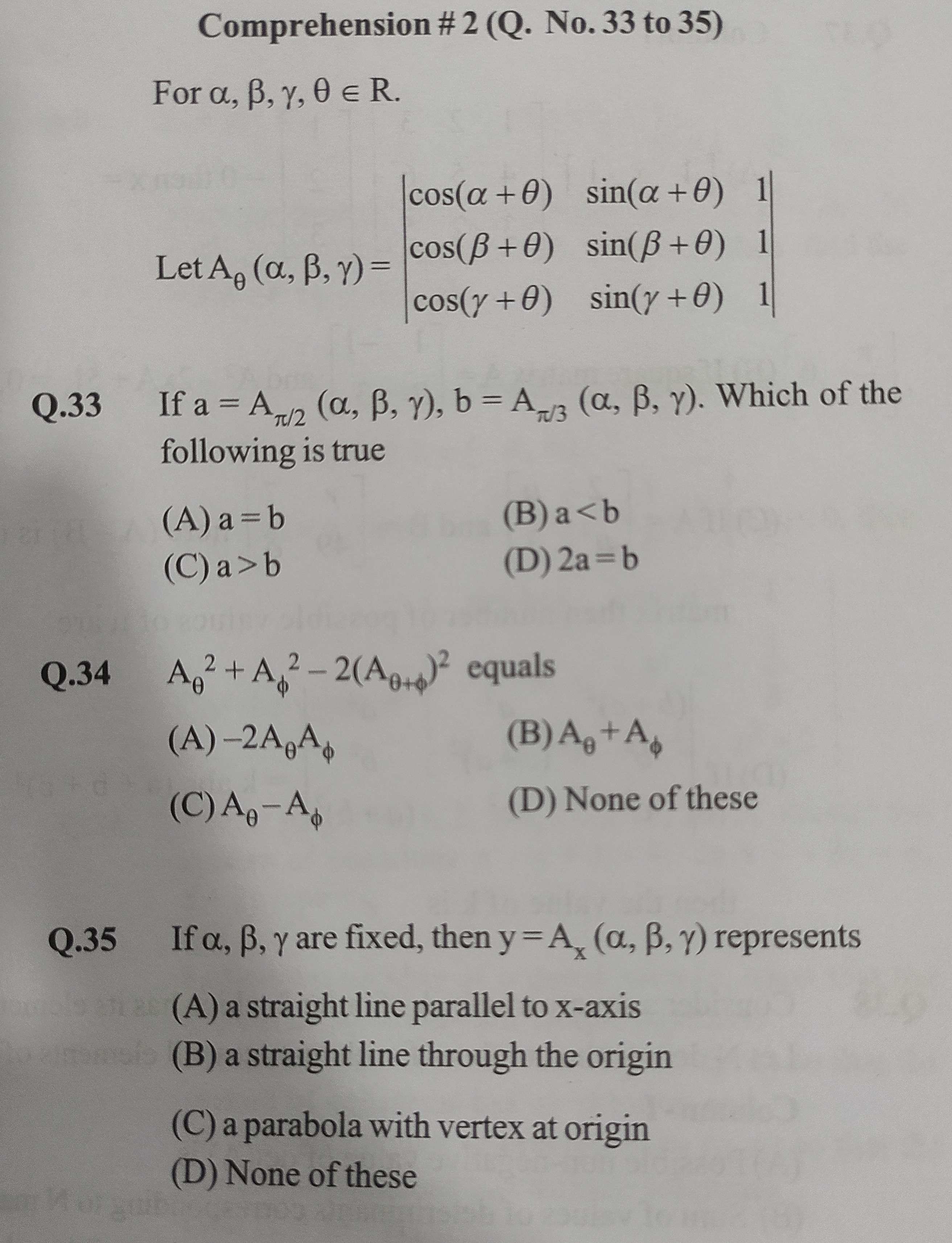Question
Question: If a = $A_{\pi/2}$ (α, β, γ), b = $A_{\pi/3}$ (α, β, γ). Which of the following is true...
If a = Aπ/2 (α, β, γ), b = Aπ/3 (α, β, γ). Which of the following is true

A
a = b
B
a < b
C
a > b
D
2a = b
Answer
a = b
Explanation
Solution
We are given Aθ(α,β,γ)=cos(α+θ)cos(β+θ)cos(γ+θ)sin(α+θ)sin(β+θ)sin(γ+θ)111.
Key idea: Notice that if we set x=α+θ,y=β+θ,z=γ+θ, then the determinant becomes Aθ(α,β,γ)=cosxcosycoszsinxsinysinz111.
It is a known fact (which one can verify by direct expansion) that for any three angles x,y,z, cosxcosycoszsinxsinysinz111=−4sin(2y−x)sin(2z−x)sin(2z−y).
Thus, we have Aθ(α,β,γ)=−4sin(2β−α)sin(2γ−α)sin(2γ−β).
The important observation is that the final expression is independent of θ.
Let K=−4sin(2β−α)sin(2γ−α)sin(2γ−β). Then for every θ, Aθ(α,β,γ)=K.
Given: a=Aπ/2(α,β,γ)=K,b=Aπ/3(α,β,γ)=K. Therefore, a=b.
